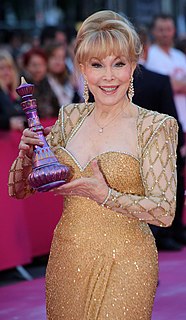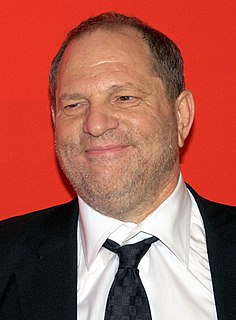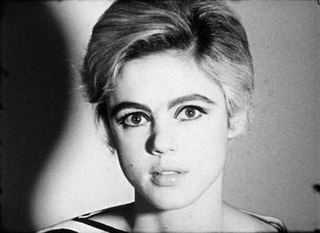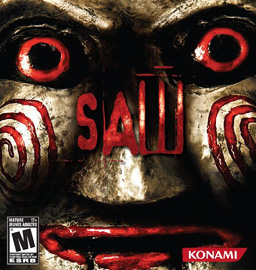
Soylent Green is a 1973 American dystopian thriller film directed by Richard Fleischer and starring Charlton Heston and Leigh Taylor-Young. Edward G. Robinson appears in his final film. Loosely based on the 1966 science fiction novel Make Room! Make Room! by Harry Harrison, it combines both police procedural and science fiction genres; the investigation into the murder of a wealthy businessman and a dystopian future of dying oceans and year-round humidity due to the greenhouse effect, resulting in suffering from pollution, poverty, overpopulation, euthanasia and depleted resources.
Score or scorer may refer to:

Blues Brothers 2000 is a 1998 American musical comedy film that is a sequel to the 1980 film The Blues Brothers, written and produced by John Landis and Dan Aykroyd. Directed by Landis, the film stars Aykroyd and John Goodman, with cameo appearances by various musicians. The film is dedicated to John Belushi, Cab Calloway, and John Candy, cast members from the original film who had died prior to the sequel's production.

Closing credits or end credits are a list of the cast and crew of a particular motion picture, television program, or video game. Where opening credits appear at the beginning of a work, closing credits appear close to, or at the very end of a work. A full set of credits can include the cast and crew, but also production sponsors, distribution companies, works of music licensed or written for the work, various legal disclaimers, such as copyright and more. Some long-running productions list "production babies".

Dennis Franz Schlachta, known professionally as Dennis Franz, is an American former actor best known for his role as NYPD Detective Andy Sipowicz in the ABC television series NYPD Blue (1993–2005), a role that earned him a Golden Globe Award, three Screen Actors Guild Awards and four Primetime Emmy Awards. He also portrayed Lt. Norman Buntz in the similar NBC series Hill Street Blues (1985–1987) and its short-lived spinoff, Beverly Hills Buntz (1987–1988).

Barbara Eden is an American film, stage, and television actress, and singer, best known for her starring role of "Jeannie" in the sitcom I Dream of Jeannie.

Harvey Weinstein, CBE, is an American former film producer. He and his brother Bob Weinstein co-founded the entertainment company Miramax, which produced several successful independent films, including Sex, Lies, and Videotape (1989), The Crying Game (1992), Pulp Fiction (1994), Heavenly Creatures (1994), Flirting with Disaster (1996), and Shakespeare in Love (1998). Weinstein won an Academy Award for producing Shakespeare in Love, and garnered seven Tony Awards for a variety of plays and musicals, including The Producers, Billy Elliot the Musical, and August: Osage County. After leaving Miramax, Weinstein and his brother Bob founded The Weinstein Company, a mini-major film studio. He was co-chairman, alongside Bob, from 2005 to 2017.

Police Rescue is an Australian television series which originally aired on ABC TV between 1989 and 1996. It was produced by ABC and Southern Star Xanadu in association with the BBC.

Screen Gems, Inc. is an American film production and distribution studio that is a division of Sony Pictures' Motion Picture Group, a subsidiary of Japanese multinational conglomerate Sony. It has served several different purposes for its parent companies over the decades since its incorporation. The label currently specializes in genre films, mainly horror.

The Screen Tests are a series of short, silent, black-and-white film portraits by Andy Warhol, made between 1964 and 1966, generally showing their subjects from the neck up against plain backdrops. The Screen Tests, of which 472 survive, depict a wide range of figures, many of them part of the mid-1960s downtown New York cultural scene. Under Warhol’s direction, subjects of the Screen Tests attempted to sit motionless for around three minutes while being filmed, with the resulting movies projected in slow motion. The films represent a new kind of portraiture—a slowly moving, nearly still image of a person. Warhol's Screen Tests connect on one hand with the artist's other work in film, which emphasized stillness and duration, and on the other hand with his focus after the mid-1960s on documenting his celebrity milieu in paintings and other works.

Saw is an American horror franchise distributed by Lionsgate, produced by Twisted Pictures and created by James Wan and Leigh Whannell, that consists of eight feature films and additional media. In 2003, Wan and Whannell made a short film to help pitch as a potential feature film. This was successfully done in 2004 with the release of the first installment at the Sundance Film Festival. The film was released theatrically that October. The sequels were directed by Darren Lynn Bousman, David Hackl, and Kevin Greutert, and were written by Wan, Whannell, Bousman, Patrick Melton, and Marcus Dunstan, and were released subsequently every October, on the Friday before Halloween, between 2004 and 2010. Both of the creators remained with the franchise as executive producers. On July 22, 2010, producer Mark Burg confirmed that the seventh film, Saw 3D, is the final installment of the series. Lionsgate reportedly expressed interest in continuing the franchise in 2012 with a reboot. In November 2013, it was reported that they were in active development of a sequel. An eighth film, Jigsaw, was released in October 2017.
Jeopardy! is an American television quiz show created by Merv Griffin, in which contestants are presented with clues in the form of answers, and must phrase their responses in the form of a question. Throughout its run, the show has regularly offered auditions for potential contestants, taking place in the Los Angeles area and occasionally in other locations throughout the United States. Unlike those of many other game shows, Jeopardy!'s audition process involves passing a difficult test of knowledge on a diversity of subjects, approximating the breadth of material encountered by contestants on the show. Since 2006, an online screener test is conducted annually.

Gary Leslie Whitta is an English-born American screenwriter, author, game designer, and video game journalist. He is known as the former editor-in-chief of both the UK and US editions of PC Gamer magazine and contributor to gaming magazine ACE.

Saw, also known as Saw: The Video Game, is a survival horror video game that was developed by Zombie Studios and published by Konami for PlayStation 3, Xbox 360 and Microsoft Windows. The game was released on October 6, 2009, in North America and later that year in other regions. The Microsoft Windows version was released on October 22, 2009. Part of the Saw film franchise, the game is set between the first and second films.

Whiskey Media was an American online media company founded independently by CNET co-founder Shelby Bonnie in 2008. It was the parent company of Tested, Screened, and Anime Vice, and the former parent company of Giant Bomb and Comic Vine. Whiskey Media websites are wiki community based, while maintaining an editorial staff. The company's target demographic are focused primarily on males between 10 and 30. The name "Whiskey Media" is a reference to a Kentucky distillery that was owned by the family of Shelby Bonnie before prohibition. Whiskey Media operates in San Francisco, California, after previously being located in Sausalito. On March 15, 2012, Whiskey Media was acquired by Lloyd Braun and Gail Berman's BermanBraun along with Tested, Screened, and Anime Vice while Giant Bomb and Comic Vine were bought separately by CBS Interactive.

Detective David Tapp is a fictional character from the Saw franchise, introduced in Saw (2004) as a detective investigating a series of crime scenes linked to the same murderer.

Makeup Man is a 2011 Malayalam film directed by Shafi. The film stars Jayaram, Sheela, Suraj Venjarammoodu and Siddique in the lead roles, with Kunchako Boban and Prithviraj appearing in guest roles. Vidyasagar composed the music, with lyrics penned by Kaithapram. The tumultuous life of a couple, after the wife becomes a heroine just by chance and the husband is forced to disguise himself as her makeup man, is being told here. The storyline is similar to 2001 French movie My Wife Is an Actress. 2013 Kannada movie Radhan Ganda starring Komal had a similar storyline.

Unfriended is a 2014 American supernatural horror film directed by Levan Gabriadze, written by Nelson Greaves, executive produced by Jason Blum, co-produced by Adam Sidman, and produced by Greaves and Timur Bekmambetov. The film is shot as a computer screen film. The film stars Shelley Hennig, Moses Jacob Storm, Renee Olstead, Will Peltz, Jacob Wysocki, and Courtney Halverson as high school students in a Skype conversation that is haunted by a student, played by Heather Sossaman, who was bullied and committed suicide.
The Grand Tour is a British motoring television series, conceived by Jeremy Clarkson, Richard Hammond, James May, and Andy Wilman, produced by Amazon Studios, launched on 18 November 2016, and made exclusively for streaming from Amazon Prime Video. The programme's format is similar to that of the BBC series Top Gear: each episode is hosted by Clarkson, Hammond and May, features a mixture of live-audience segments and pre-recorded films, and focuses on reviews of cars, discussions on motoring topics, celebrity timed laps, races and special motoring challenges.














